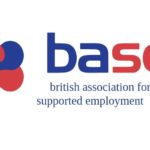Here’s what you need to know about attracting and recruiting neurodivergent young people into your organisation.
According to My Disability Jobs, around 15-20% of the global population is neurodivergent and unemployment for neurodivergent1 adults may be as high as 30-40% (this is three times the unemployment rate for people with other disabilities, and eight times higher than the rate for non-disabled people.)
Neurodivergence refers to people whose mental or neurological functions differ from what is considered normal or typical in our society. Conditions such as autism and ADHD fall under the umbrella of neurodiversity, as well as dyslexia, dyspraxia, dyscalculia, Tourette Syndrome, and an array of other diagnoses and experiences.
Neurodivergent young people face particular barriers when it comes to accessing work and succeeding in the workplace. In today’s article, we will look at what you need to know about recruiting neurodivergent young people for your jobs, apprenticeships, or training schemes and how you can improve the neurodiversity of your team.
Learn Your Responsibilities
In many cases, neurodivergent conditions may fall under the legal category of disability in the UK (“[having] a physical or mental impairment that has a substantial and long-term negative effect on your ability to do normal daily activities.”)
This means that you have a legal obligation as an employer not to discriminate against your neurodivergent applicants or employees and to provide reasonable adjustments to help them to succeed at work.
Before you go any further, take some time to learn your responsibilities. LexisNexis’s guide to neurodiversity in the workplace is a great place to start. If you are in doubt about any of your responsibilities, consult an employment lawyer.
Consider Reasonable Adjustments
During the recruitment process and once you have recruited a neurodivergent candidate, you may need to provide reasonable adjustments to enable that person to access the application process or to succeed in their role.
The exact adjustments needed will vary by individual. It is always best to ask rather than to make assumptions as even two people with the same diagnosis can have very different needs.
A few examples you might want to consider include:
- Providing a quiet space for a neurodivergent employee to work or take their interview (many neurodivergent people are either easily overstimulated by excess noise or easily distracted)
- Allowing employees to work from home some or all of the time
- Allowing employees to take regular breaks throughout the day
- Offering flexible working hours so that neurodivergent employees can work during their best hours
- Allowing for the use of devices such as noise-cancelling headphones to reduce sensory input or block out distractions
- Allowing for the use of “fidget toys” at work or during meetings (this can help to aid with focus)
- Providing a standing desk (this can be useful for neurodivergent people who struggle to sit for long periods)
Use Clear and Straightforward Language
Long and overly complicated job advertisements can be off-putting and inaccessible to neurodivergent candidates. For example, autistic candidates may struggle with metaphors and figures of speech, candidates with ADHD may struggle to focus when reading large blocks of text, and dyslexic candidates may find long words difficult to read and understand.
Here’s our quick guide to neurodivergent-friendly job ad language:
- Use plain English and the simplest words possible to convey your point
- Avoid use of idiom, analogy, or figures of speech
- Avoid industry jargon
- Break up text into small and easily readable chunks
- Subheadings, bullet points, and short paragraphs make text easier to read
If in doubt, seek input from neurodivergent people. They will be able to identify any issues that you may not have spotted before you put the job ad out into the world.
Offer Different Forms of Assessment
Many neurodivergent people may not perform well in a traditional interview setting. They may feel flustered or unprepared by questions that they were not expecting, or struggle with the body language that is typically expected in interviews (such as giving a lot of eye contact.) This can mean that you do not get a true picture of their abilities in this type of environment.
Providing different assessment options can allow neurodivergent young people to excel and show off their skills in a way that feels more comfortable to them. Work trials or tasks that they can complete from home may be better options for these young people.
Make Your Interviews Accessible
If you are doing a traditional interview process, consider offering to provide the questions to neurodivergent candidates upfront to allow them to feel more prepared.
Remember to use straightforward and literal language when asking questions or explaining things, too. Idioms or metaphors can be confusing to many neurodivergent people (as well as to those who have learned English as a second language.) Avoid vague or general questions such as “tell me about yourself.”
Offer as much information as you can in advance of the interview. For example, you might provide a map of the site, information on public transport or parking nearby, and a timetable for how the interview will run. You could also let the candidate know who will be meeting them, and provide them with a quiet space to wait until their interview time. Plenty of information can help neurodivergent people to feel more comfortable in an unfamiliar and stress-inducing setting.
Think Carefully About Your Job Requirements
Many employers make the mistake of reusing the same job ad template over and over, only changing it slightly for each role. This can result in job requirements being listed that may not actually be essential for a given role, leading neurodivergent candidates to self-select out when they might otherwise be ideal for the position.
One example is the ubiquitous “excellent communication skills.” Some neurodivergent conditions can cause difficulties with communication and social interaction, so think about whether this skill is really essential. In some cases (such as a customer service role) it might be, whereas in others (such as a computer programmer role) it may not be. Remember that neurodivergent people who struggle with communication can bring many other valuable skills and attributes to the table.
Finally: Check Your Assumptions
What assumptions and biases are you carrying about neurodivergent people? We all have unconscious bias, and the best way to combat it is to intentionally acknowledge and work against it.
Confronting and checking your own assumptions is the best way to start making sure your workplace is open, accepting, and accessible to all.
1 “Neurodiverse” is a term that refers to a group or demographic containing a variety of neurotypes. “Neurodivergent” is an individual term to refer to a person whose brain works in a way that is not considered typical. (Non-neurodivergent people are referred to as “neurotypical.”)





